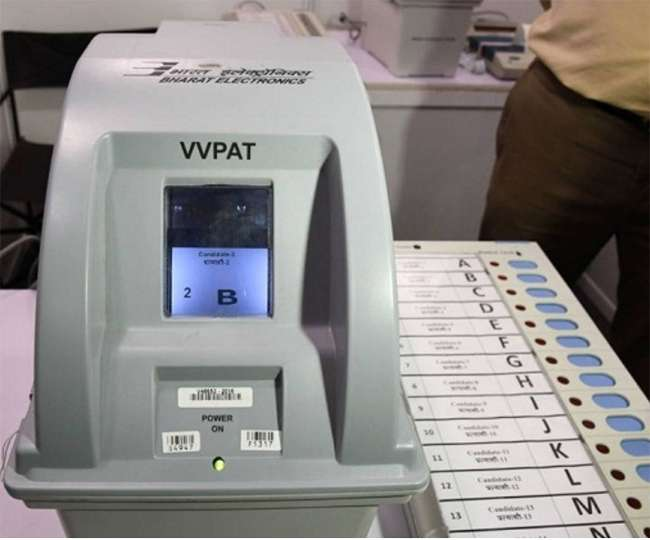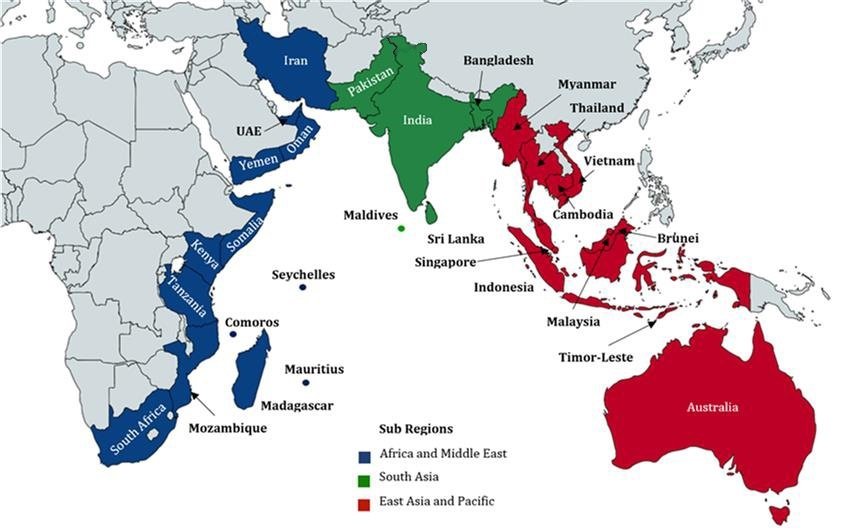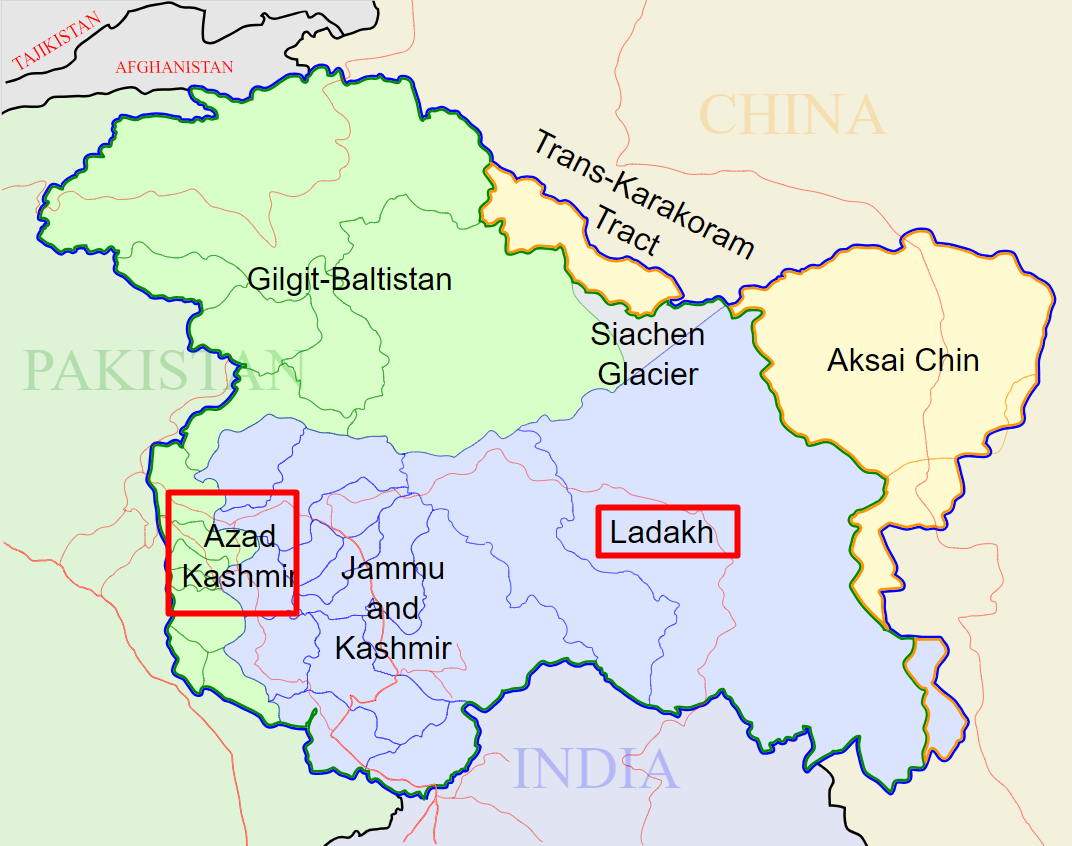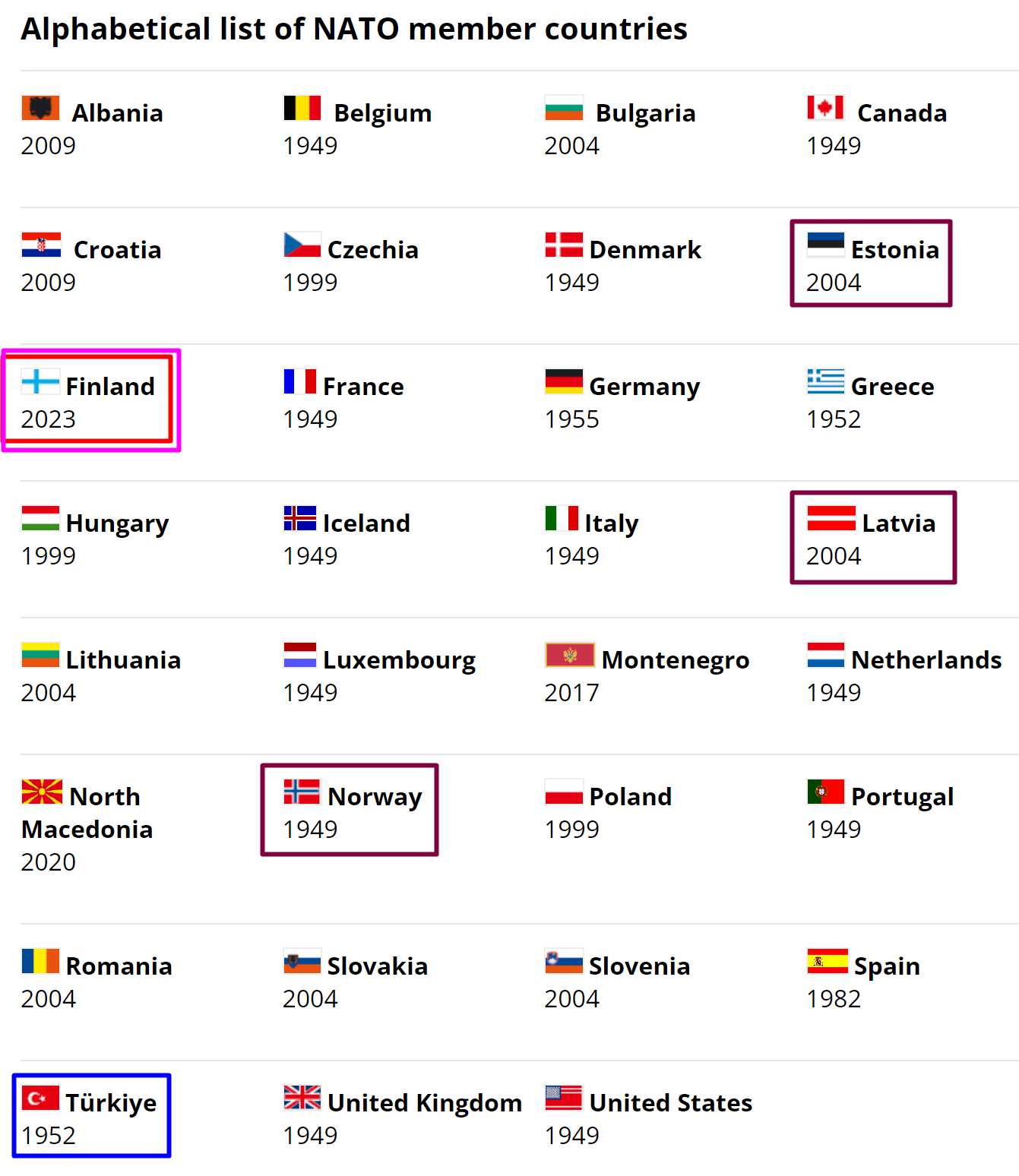
MPLADS: Members of Parliament Local Area Development Scheme
Subscribers of "Current Affairs" course can Download Daily Current Affairs in PDF/DOC
Subscribe to Never Miss an Important Update! Assured Discounts on New Products!
Must Join PMF IAS Telegram Channel & PMF IAS History Telegram Channel
- Context (PIB): The details of sanctioned work under the Members of Parliament Local Area Development Scheme (MPLADS) were put forth by MoSPI.
- It is a Central Sector Scheme formulated by the GoI in 1993-94.
- MPLADS enables the members of parliament (MPs) to recommend developmental work in their constituencies, emphasising creating durable community assets based on locally felt needs such as drinking water, education, public health, sanitation, roads etc.
- The Ministry of Statistics and Programme Implementation (MoSPI) is responsible for the policy formulation, release of funds and monitoring for the implementation of the Scheme.
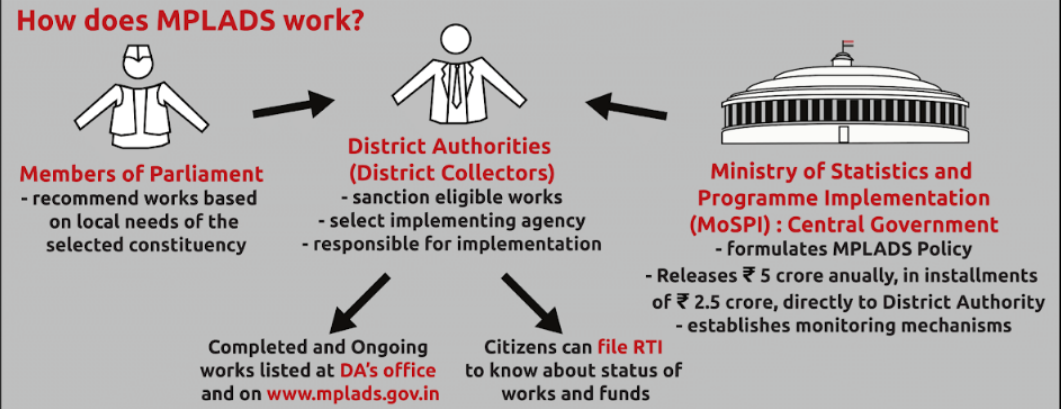
Features
- The Annual MPLADS fund is Rs. 5 crore per MP constituency.
- MPLADS funds are non-lapsable, either at the end of the Union Government or the District Authority.
|
- MPs must recommend works yearly for SCs (15%) and STs (7.5%) areas out of the total amount.
- Lok Sabha Members can recommend works within their Constituencies.
- Elected Members of the Rajya Sabha can recommend works within the State of Election.
- Nominated MPs of both the Rajya Sabha & Lok Sabha can recommend works anywhere in India.
- Expenditure on specified items of non-durable nature is also permitted, as listed in the guidelines.
Issues with MPLADS
| Issue | Description |
| Lack of transparency and accountability |
|
| Ineffective targeting of funds |
|
| Lack of participation by local communities |
|
| Inadequate monitoring and evaluation |
|
| Lack of statutory backing |
|




![PMF IAS Environment for UPSC 2022-23 [paperback] PMF IAS [Nov 30, 2021]…](https://pmfias.b-cdn.net/wp-content/uploads/2024/04/pmfiasenvironmentforupsc2022-23paperbackpmfiasnov302021.jpg)



